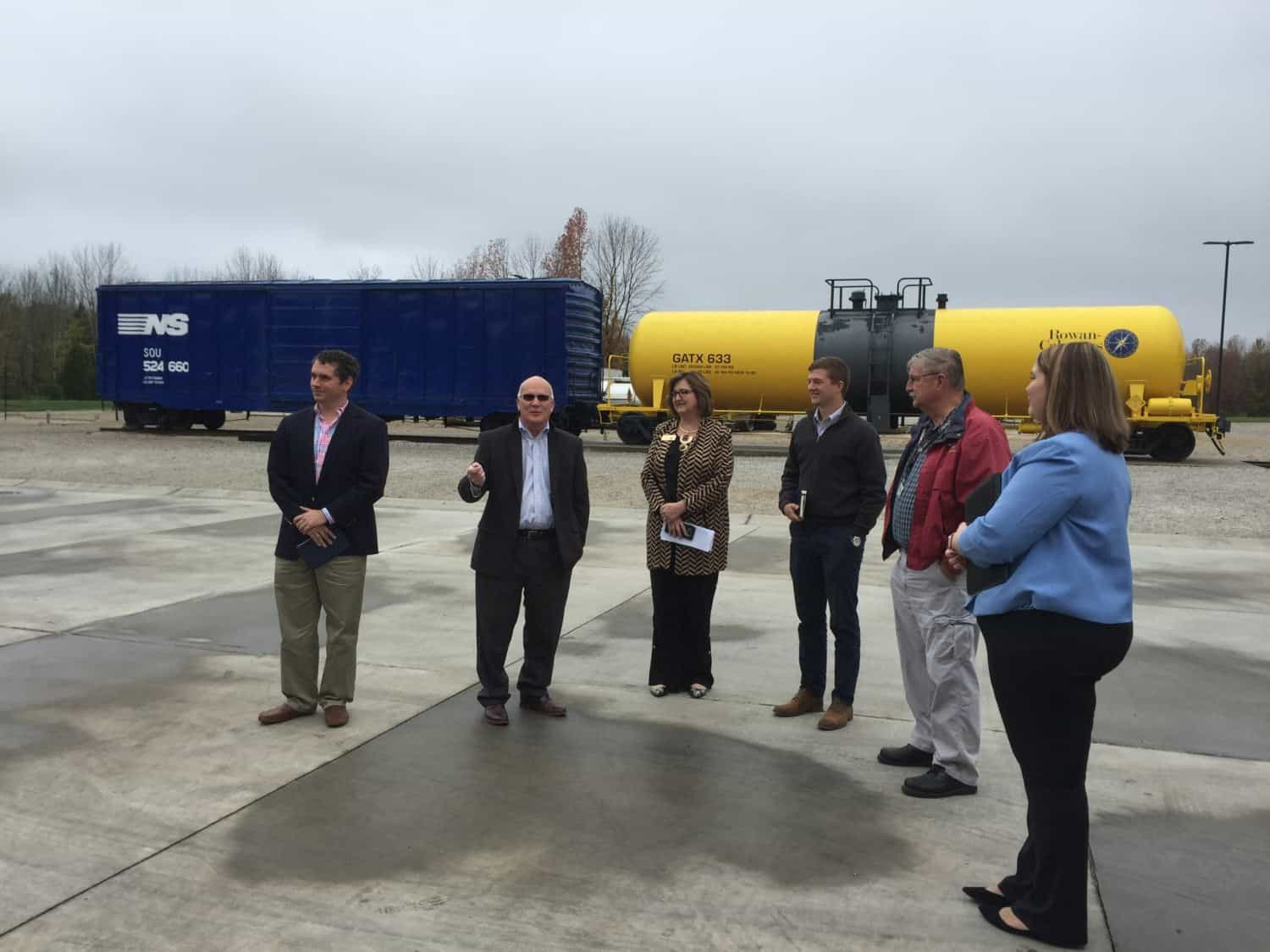North Carolina has seen a lot of effort dedicated to statewide conversations around education in recent years. Commissions. Court-ordered reports. Coalitions. It has been difficult to keep up with the wide variety of initiatives.
The WestEd report last week is the latest example, but we also have the myFutureNC Commission attainment goal, the Pathways work of the early childhood community, and recent statewide conversations about resilience and Adverse Childhood Experiences. More folks than ever before recognize the importance of the full educational continuum. Efforts are underway to get our earliest learners ready for their K-12 journey, the Leandro case and the associated efforts are focused on making sure all children have access to a sound, basic education, and myFutureNC is focused on those students ultimately attaining a high-quality degree or credential.
Our travels throughout the state in the past five years have lifted up countless examples of communities that aren’t waiting for the conversations to play out but are working to create change immediately.
Since August 2018, I have traveled to 25 community colleges for more than three dozen campus visits.
My colleagues and I have visited the drone program at Pitt Community College, the aviation program at Guilford Tech, the brewing programs at Blue Ridge Community College and A-B Tech, and we have seen apprentices at work in Alamance County with Alamance Community College.
We have discussed the devastation of Hurricane Florence with tears in our eyes at James Sprunt Community College with several students who saw their lives changed dramatically by the storm. We have met students who were able to stay in college because of Finish Line Grants at Gaston College, Wilkes Community College, and Forsyth Tech.
Several themes have emerged throughout the visits over the past year.
Enrollment is a core issue
Enrollment is likely to remain a central topic of discussion for community colleges across the state and the country. We are now in the longest period of sustained enrollment decline in the community college sector of the modern era. This is due to a combination of factors, including sustained economic growth, but almost every college is wrestling with the issue.
Over the past 12 years in North Carolina, enrollment has declined by 2% — but if you take Wake Tech (aided by an explosion of population growth in the Triangle) out of the equation, the decline would be closer to 6%.
A significant challenge for our rural community colleges is that they often serve counties with flat or declining populations.
Several of the rural community colleges I visited this year are trying to buck the trend. Richmond Community College, for example, defined its business model and is sticking with it. It revamped its course offerings to provide a more defined pathway for students to transfer to a four-year college, earn a high-quality credential, or receive an associate degree that is connected to a high-paying job.
Richmond President Dale McInnis said the changes were driven by his belief that community colleges’ business model “simply can’t be waiting for the next recession.”
Other rural colleges are focused on tightening their relationships with their local K-12 systems through an emphasis on Career and College Promise, dual enrollment, and even sharing staff. When we visited McDowell Tech, McDowell County Schools Superintendent Mark Garrett told us, “Community colleges and the K-12 system have to find as many ways to work together as possible for the good of all of the students. It is the only way we are going to increase attainment in our region and across the state.”
McDowell Tech and McDowell County Schools have a particularly interesting partnership around Career and Technical Education in an attempt to engage white male students in hopes of preventing them from dropping out.
The question of how to bolster enrollment, fill classrooms, and reach communities that have not been enrolling (or completing) will remain critical in the years ahead.
Energy around the statewide attainment goal
Another theme from our visits is the growing focus on a statewide attainment goal. While colleges have always been focused on bolstering enrollment and driving completion, the conversation around a statewide attainment goal has been driven in large part by the myFutureNC Commission.
The commission’s goal is for 2 million North Carolinians ages 25 to 44 to receive a high-quality degree or credential by 2030. The key number is roughly 400,000 — the gap between where our state is projected to be in 2030 because of factors already in play and the goal of 2 million.
The commission is moving forward with significant plans in 2020 to assist localized efforts across the state. You can also expect to see the 2 million goal broken down by locality so North Carolinians can better understand the role their communities will play toward achieving the attainment goal.
Recently, I visited Blue Ridge Community College to learn more about the Land of Sky Collaborative, one of the first localized efforts to really get moving.
Blue Ridge Community College president Laura Leatherwood discussed the effort in a perspective we published this fall:
“What do we do? The Land of Sky Regional Council is working on just that. Land of Sky is a multi-county, local government, planning and development organization with a mission to provide creative regional solutions to relevant and emerging issues in Buncombe, Henderson, Madison, and Transylvania counties while providing a standard of excellence in the delivery of federal, state, and regional services for our member communities. … Aligning post-secondary attainment with the demands of employers remains our No. 1 priority and No. 1 challenge.”
The Land of Sky efforts are just beginning to take hold, but its leaders are conducting extensive research, holding listening sessions, and working to get buy-in from local, regional, and statewide leaders in a very intentional way.
We will continue to document bright spots focused on attainment in 2020, as well as report on further developments of the commission. We expect the conversation around attainment to continue to heat up through the efforts of myFutureNC — and the high level of buy-in from community college presidents, statewide leadership, and others.
Another common topic of conversation from our visits that connects with attainment, but also one illustrating increased emphasis on collaboration, is the work being done in support of apprenticeship programs across the state. We saw these firsthand during our visits to Gaston College, Alamance County, and Blue Ridge Community College.
The Made in Henderson County Apprenticeship Program, an effort housed at Blue Ridge, is a three-semester program focused on providing students with paid on-the-job experience, and both a Mechatronic Engineering Certificate and a job offer at its conclusion. The apprenticeship program is going to add additional industries and certificates including HVAC, Banking and Finance, and Information Technology.
I expect you will see more apprenticeship programs launch in the years ahead, and existing programs grow to meet industry demands, as well as serve students who are seeking industry-focused certifications and real-world work experience — and who appreciate being paid during the process.
Short-term workforce development programs
A dominant conversation during our visits in 2019, and the legislative session that seemed to never end, was the importance of short-term workforce development. The NC Community College system budget priorities included short-term workforce development parity funding.
The key element is “short-term.” Many of the students I met throughout the year indicated that the quick nature of the programs, the flexibility of course times including night classes, and the connection to real industry needs made these courses appealing to them, given their needs.
We met Uri Osorio during our visit to Stanly Community College. After deciding he wanted to pursue a career in automotive repair, he found out about the Stanly short-term program online. Osorio had a story that was common in our visits to workforce development classes.
“I wanted to get into a program like this,” he told us. “I work in the afternoons part-time, so I needed something where I could work and pay my own expenses. This works out way better for me.”
Looking ahead
Our team has traveled to all 58 community colleges since we began our work in the space, and we have visited many of the campuses more than once in the past sixteen months. I have personally been to 31 different colleges across dozens of visits while I have been part of the EdNC team. And I hope to make it to all 58 soon.
It has also been a delight to send 60 Awake58 newsletters during the same time period. I hope you receive the newsletter each week. If you don’t, sign up by clicking here. We designed the newsletter to be a two-way conversation with you. I have enjoyed hearing from many community college stakeholders each week as we delve into important issues, lift up stories from across the state, and share information from across the postsecondary space nationally.
We will continue to document your stories through news, research, data, and video in 2020. And we hope anyone with a story to share will write a first-person perspective so our state hears directly from you.
We are grateful that you allow us to visit your campuses and communities, trust us with your stories, welcome us in to your inboxes through Awake58, and share our content with your friends and colleagues. When we launched almost five years ago, it was with the sincere hope that we would help facilitate a conversation about education, and our very future as a state, with folks across North Carolina through sharing your stories, building an architecture for people to participate, and making sure that we were constantly visiting your schools, colleges, places of faith, and other institutions that define your community. It is an incredible privilege to be able to do this work. Thank you for being with us each day.
See you out on the road.



